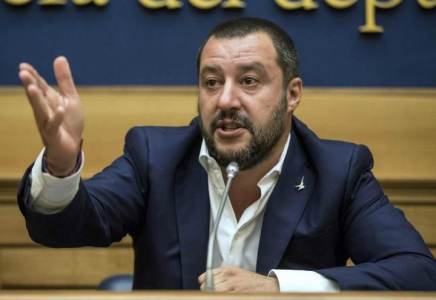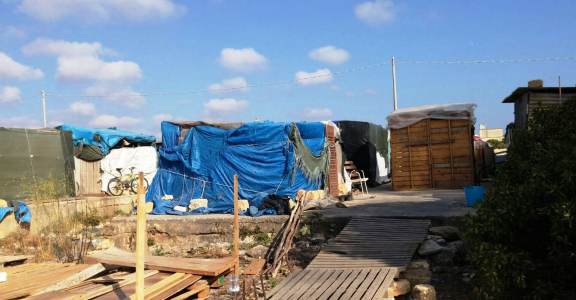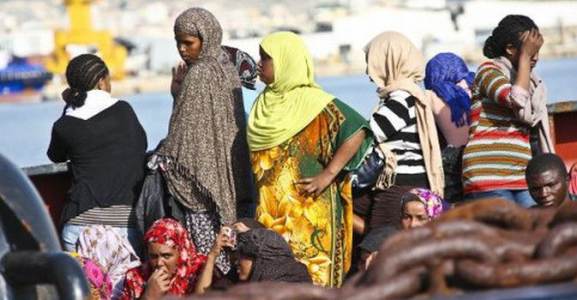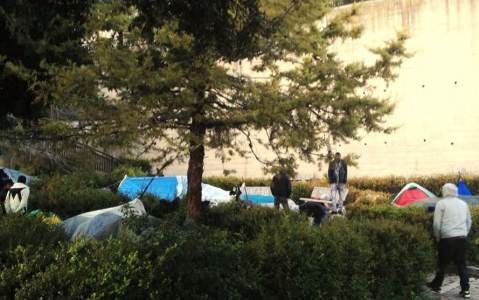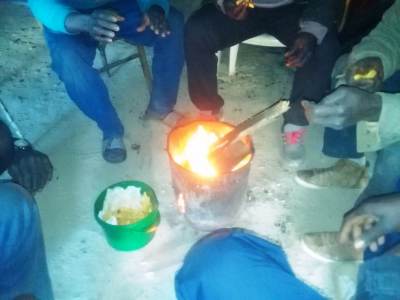The Only Certainty: Support of the Mafia and Informal Sector
On Thursday, July 25th, after the news of the last horrible massacre on sea was spread, the Italian government approved of a second ‘security decree’ (decreto di sicurezza bis).
While approximately one hundred people were dragged underwater by the waves, Italian representatives declared war on rescue operations in the Mediterranean and have thus tarnished the institutions and the whole republic. It is the new millennium’s fascism Italian style, it is the total dehumanization and final dissolution of what has been left of the democratic institutions as they had been conceived by the constituents.
During these days there have been news – without any outcry of the press – of a variety of cases of fraud and exploitation of migrants.
The dynamics and mechanisms that have always been around are still possible today due to safety decrees. The first decree that had been signed into law December last year and has abolished the first reception and protection system is a gift from heaven for the mafia, criminals, exploiters, and, of course, the most flourishing sector of the economy: the informal sector. The abolishing of humanitarian protection and the necessity to change residency permits to working permits that has resulted from this have caused an increasing number of bought work contracts, residence, and forged passports similar to the times of amnesty.
Our Economy Needs Slaves
And those who cannot pay have to wander through barracks, train stations, and the countryside as long as their strength can hold up their exhausted and humiliated bodies. Like Moussa, a 50 year-old man who has lived in Campobello di Mazara for seven years and who is being exploited by the owner of a large olive grove but also from small farmers; who is ignored by the politicians, the prefecture, and the unions who are supposed to protect the workers. Instead, the employers will be the ones protected once again this year: it will always be them who will be supported by ignoring foundational rights like a place to stay or food. The prefecture of Trapani continues last year’s policy with their commission of experts to which they have not invited any local organization: namely, “I do not want to know anything. The most important thing is that no one must be seen.” This way the migrants will be again accommodated in tents on the land of their employers who do not provide any services to lower their own costs.
It is like handing over the migrants to the Libyans to not even have to see them on the sea or dying from torture. According to the same logic we allow the foremen everything in order to play the role of an employer. Very few inspections (“I don’t see anything therefore I don’t know anything,”) and for the few there are there will be a phone call beforehand. In Campobello, similar to other areas, a sort of gold rush has begun and there will be people connected to the first reception system this time again who will play the good Samaritan and provide – for a large fee – accommodation and services to support the workers.
In addition to this there is a wasting of public funds for alleged demolishing and redevelopment in areas such as Fontanedoro.
A Monetary Windfall for Human Traffickers
While the heads of people are bombarded with crusades against NGOs, human traffickers continue to make money and get rich thanks to Italian and European laws as the most recent arrivals in Lampedusa and on the coast of Agrigento show.
Money is also reaching human traffickers on land who help more and more people to leave Italy where no one wants to stay any longer. Even those who are very young hand themselves over to human traffickers as soon as they arrive: it suffices to look at the numbers of those who leave the centers for minors on Sicily.
The Dublin Regulation brings thousands of people back to Italy: in 2018 the number was around 6000 with a tendency to rise this year. Others are invisible, living abandoned on the streets in the middle of discomfort and desperation while Italian politicians desert European meetings to influence the mechanisms of distribution and relocation.
20 Euros per Day
While we are going for a walk with Moussa in an old facility of Erbe Bianche – where 1800 workers had camped and were expelled due to an archeological excavation – we meet an old man from the area who turns to my black friend and says: “Finally it is peaceful and we do not have the crap that was here previously, finally we can put a chair outside and be happy.”
Moussa replies with great dignity and firmness: “Today you are happy to be a garbage dump instead of having people as neighbors, you don’t protest now?”
And the old man adds: “No, on the contrary. I prefer all this garbage so that you cannot pitch your tents.”
Moussa takes my hand and gives me a sign to continue walking. And he tells me: “We are black, African, and proud of what we are. Among us there are village elders and humans with a strength and dignity of which many of those who yell at us can only dream. We are aware of the difficulties and unjust laws and in most cases we do know that even before we arrive, but we don’t decide to go, we are forced to; we don’t want to steal work, we want to stay alive, we don’t want to die. But now it becomes difficult, way too difficult. Every place where I have been has taken something away from me and Italy has given me the final blow and taken away my dignity. Do you know what it means to use the toilet without having a toilet? No, you cannot even imagine that, similar to the old man who has just yelled at me, who cannot imagine it. But tell him that I do not want anything from him. I have a dream and I hope that I can make it reality: to live so that I can return home, because I would not have left it for anything in the world, because home is the home where there is affection and support. Yes, one day I want to go home.”
Moussa, however, has to wait as currently there are no smugglers who offer a return, because no one is funding it, but if this journey brings in money the politicians will also make this other route possible as everything depends on money.
Alberto Biondo
Borderline Sicilia
Translated by: Annika Schadewaldt

